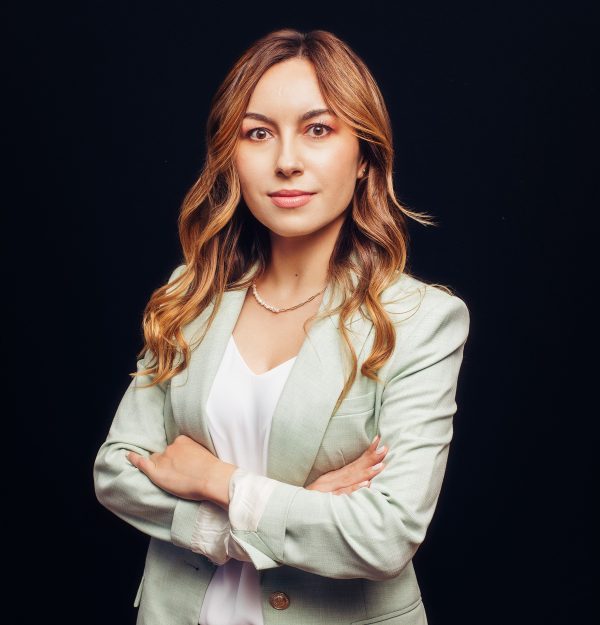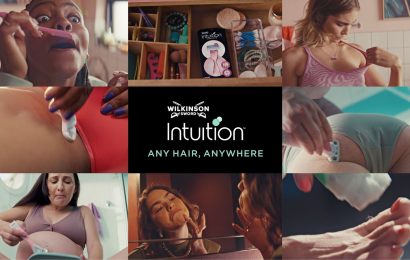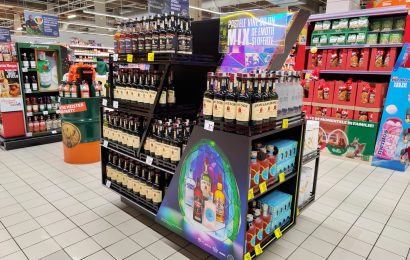Irina Manole (Oxygen): „Consumers, partners and employees are increasingly asking for information about the companies’ sustainable practices”
Oxygen is the first integrated communications agency in Romania to offset its carbon footprint and become carbon-neutral. The agency also launches a new department providing companies strategic consulting and communication services on sustainability. These initiatives are part of Oxygen’s commitment to contribute to the fight against climate change and support companies on their business sustainability journey. AdHugger talked more details with Irina Manole, Head of Sustainability & CSR at Oxygen.
At Oxygen you consider that the brand reputation is built through authentic dialogue and great content. What happens in sustainability from this point of view?
Businesses have a substantial role to play in collective climate action and we see more and more how they use their influence to engage communities and build public appetite for sustainability. There is still a need for a lot of education on this subject, and effective marketing and communication campaigns can contribute to sustainability learning on many levels, by framing or shaping new perceptions or by building empathetic discourses that can change ways of thinking and behaving. Above all, it’s important not just to talk about being a sustainable business, but to practice what we preach and make sustainability part of the business-as-usual approach.
Moreover, at Oxygen, you decided to consider sustainability and the environment a true priority by becoming the first communication agency in Romania to be carbon neutral. What convinced you to take that decision and what is next for 2022-2023?
Oxygen has always been a conscious business and now, as attention on sustainability matters intensifies, we just couldn’t stay away. It will be people who will help us win the race to net zero and we chose to take the responsibility and educate ourselves. Besides that, we’ve been seeing for some time now, that sustainability strategies take the place of CSR campaigns, and consumers, partners and employees are increasingly asking for information about the companies’ sustainable practices.
Our priorities for the next year are to reduce our carbon emissions, to continue our planting efforts and extend the Oxygen Forest and to keep our colleagues informed and engaged in our climate actions. We are also working on extending our Sustainability department and help our clients playing their part in securing a green future.
How did your clients respond? Did they decide to support it?
As we can all see, responsibilities related to sustainability become slowly obligations for companies. The coming years are announced to be full of legislative and operational challenges. So, businesses have two options: either will be a part of this journey or will remain anchored in a world from which people have moved on. Luckily for us, most of the clients we worked with embrace sustainability and are role models in their industries. Arctic, Vodafone, Enel, Tenaris and many others are integrating sustainability principles into their business strategies and have positive environmental and social impact.
What can you tell us about your sustainability & CSR department? What are you plans? Will it work from both offices – Bucharest and Cluj-Napoca or how?
The sustainability department is based in Bucharest but works for both our offices as we work closely with all our teams. Our plans from now on are to grow this department and to deepen our know-how in order to assist the current and potential clients to integrate sustainability into their whole value chains – from suppliers, to operations, partner and end-consumers.
How much do you need is the consultancy needed in Romania, especially in this field?
Currently, there is a greater interest in sustainability, especially from companies that have a production activity. But, to the same extent, the companies in the service field also need consultancy on this subject. At the end of the day, we all have to contribute to the reduction of greenhouse gas emissions from the atmosphere. In some cases, consultancy can be a final touch because many large companies already have globally aligned sustainability strategies, and in others it can be a work from scratch, which comes with many opportunities for the local communities.
How do you convince clients that they need to invest in it more?
I don’t think a greater justification is needed than the fact that we are experiencing a climate crisis that will also have a huge impact on the next generations.
More than that, a non-financial and sustainability report will become mandatory for all companies regardless of the number of employees. In discussions with our clients or potential clients, we start by analyzing the social and environmental issues relevant to the business sector, where the client operates and then think about the role the client can uniquely play based on the brand purpose. Active cooperation is needed from both sides (agency and client); it takes two to tango. But once we go through this process properly, the result will be a resilient sustainability strategy that brings a variety of benefits in terms of reputation and value perception.

You said, “The industry we operate in has the power to transform society, but for this to happen we need to act and contribute to systemic change, both for us and for our customers and partners”. Can you detail more, please?
I think that one of the most important missions we have is to bridge the intention-action gap and help people and companies act on their sustainable intentions either through education or through the power of example. It is clear that as much as many people want to be more sustainable and protect our planet, due to various factors, their actions do not live up to their intentions.
At Oxygen we try to act now and don’t overthink it. We first looked at the impact of our own activity and our process started by calculating the carbon emissions related to the agency’s activities in 2021 and offsetting them by purchasing carbon credits and implementing a series of green initiatives. Some companies feel they don’t have the time and budgets to tackle climate change but acting sooner will be less costly than doing it when legislation force us.
You also declared that you will start the construction of an internal decalogue intended for employees regarding the reduction of the carbon footprint and the development of an internal process for easy and standardized collection of the data necessary for the calculation of the carbon footprint. How long do you think it will take and what are plans looking like?
Reducing the carbon footprint is a long-term process that involves going through several stages, both at the organizational level and at the employee level. In recent years, this has been on an upward trend, considering the climate changes we are witnessing and the growing concern of the private sector to combat these changes.
For us, the natural step at this moment is to intensify internal communication among employees regarding how they can contribute to the implementation of our sustainability strategy, so that Oxygen becomes a sustainable agency through a double effort: the individual and the organizational one.
The decalogue regarding the reduction of the carbon footprint will be a tool for awareness, information, and communication with our employees, and it will have a double positive impact: both for Oxygen and for employees’ personal lives.
Because we are a communication agency, and our goal is to make the information circulate as correctly and efficiently as possible, the internal decalogue that we will build will help us to increase the degree of awareness regarding the importance of reducing the carbon footprint also among our employees’ families, under the so-called “snowball” effect.
The adoption of a sustainability strategy is a long-term commitment for us, that’s why we aim to carry out continuous, complementary actions that generate a positive impact for the environment and society in at least the medium term.
You also intend to organize training sessions for your employees and other shareholders. Have you already started this process? How is it working so far?
We started the process and we have already organized a first training session with our colleagues about how we can improve environmental communication. At Oxygen, we have a solid culture of professional development, and sustainability trainings are also on the agenda of our training programs. We are also focused on sharing knowledge with our clients and partners, CSR Nest being the organization that supports us in the business sustainability journey.
What would you say that are the main trends in sustainability right now in Romania?
Perhaps the most discussed topics are about regulation and standards which are currently finding their place within industries. At the same time, as more consumers become conscious of the recyclability of the products that they buy many companies and businesses will start working with research, development, designers’ teams to create circular packaging from the design phase. From a communication point of view, we see a shift away from messages that encourage consumption and status towards values about collective wellbeing and nature preservation.






